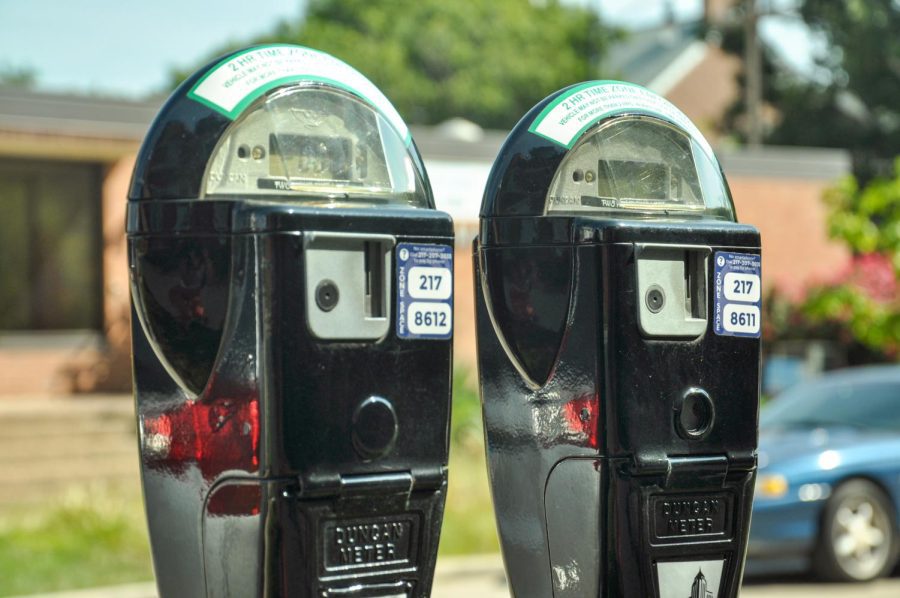UI moves toward app-based parking payment
City of Champaign parking meters sit by the University YMCA on Chalmers Street. The University encourages mobile payments for parking since they have removed parking meters across campus over the summer.
August 29, 2022
In the beginning of Summer 2022, the University began removing parking meters around campus. The conversation to remove the University parking meters arose prior to the COVID-19 pandemic and originated because the meters are outdated.
“The vendor that we got them from no longer supports them,” said Maria McMullen, assistant director of parking at the University. “They’re really old technology from like, the ’80s.”
The push to remove the meters was also sparked because of theft.
“A few years ago, we had some theft in our department,” McMullen said. “So, that was one of the big things that sparked this.”
According to McMullen, a lot of other universities have entirely gone to a pay-by-app model.
Get The Daily Illini in your inbox!
Paying for parking through an app has been around for years. The option to use the app PayByPhone began in 2014.
“We’ve had the capability of people being able to use the app for payments at any of the meters,” McMullen said.
In addition to PayByPhone, parking fees can be paid through MobileMeter and ParkMobile.
McMullen said that this a gradual change and the plan is to not remove all of the parking meters right away.
Instead, the University began removing parking meters in areas that collected the least amount of coins.
“When we did collect, we had the least amount of coins in those areas, so we knew not many people were using coins,” McMullen said.







